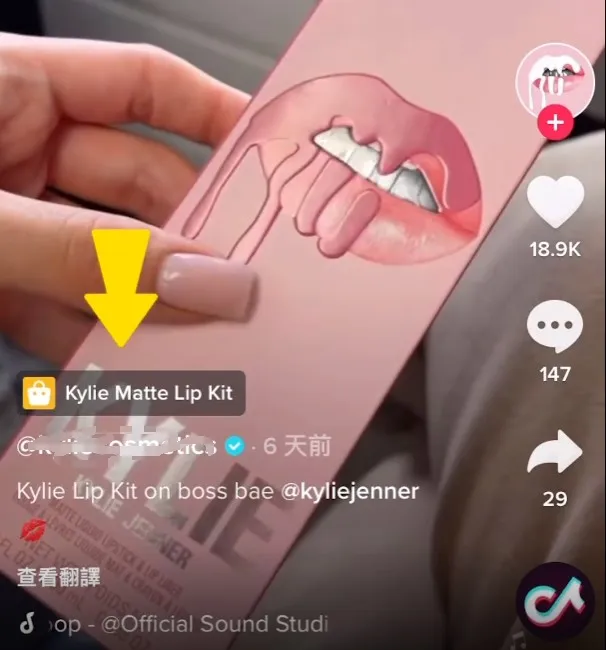
The Latest Pinterest Download and Registration Guide for 2025: Simple and Effective!
In the process of cross-border traffic, everyone is quite familiar with social media like TikTok and Facebook. However, …

Table of Contents
Currently, TikTok’s semi-closed loop model has been launched in a beta version across eight major countries, including Germany, France, Spain, Italy, Canada, Australia, Japan, and South Korea, with plans to expand to more countries and regions in the future. This move undoubtedly presents numerous business opportunities for cross-border merchants. How to find new opportunities in this vast sea has become one of the hottest topics today. Many of you are familiar with the semi-closed loop, which essentially refers to TikTok collaborating with external e-commerce platforms. Merchants can place external product links on their TikTok profile page or videos, and users can click these links to make purchases on independent sites. In simpler terms, it’s similar to the “mini yellow car” feature on Douyin, with TikTok acting as a traffic-driving tool.

As early as 2021, TikTok had already partnered with Shopify to launch its semi-closed loop business. It wasn’t until last year’s launch of the small shops in the American region that TikTok began to push forward with the fully integrated TikTok Shop and the fully managed model. Many believe that TikTok’s choice to enter these eight major markets with a semi-closed loop model may be replicating the approach previously used in the UK and US.
It’s clear that TikTok’s expansion targets regions like the EU and Japan and South Korea, which have advanced internet infrastructures, high economic levels, and relatively mature e-commerce ecosystems. This seems to be a very favorable situation for cross-border merchants, but it also brings new challenges. Whether in Europe or Japan and South Korea, the trade rules and local cultures are vastly different. Cross-border merchants need to be well-informed about the target markets before entering. Although the European market has high consumer spending power, recent severe inflation has made consumers more sensitive to prices. Additionally, the trade regulations in Europe are quite strict for foreign companies.
Germany: As one of the largest economies in Europe, Germany has a generally high consumer spending power. According to Statista, the German e-commerce market is expected to reach approximately 93 billion euros by 2024, indicating fierce competition. Additionally, the German government places a high emphasis on consumer safety and environmental protection, with industries under strict regulation and laws that are detailed and continuously updated, raising the market entry barrier for cross-border merchants.
France: Government intervention in France has maintained a relatively controlled inflation level, currently one of the lowest in the EU. France is also the third-largest e-commerce market in Europe, after the UK and Germany. The advantage here is that French consumers have reached a decade-high level of trust in shopping platforms, preferring uniquely designed, high-quality products and valuing personalized experiences.
Spain: With an internet penetration rate of 94%, Spain provides a solid foundation for the development of e-commerce and social media. According to Statista, the Spanish e-commerce market is expected to reach $25.824 billion by 2024, indicating rapid growth, particularly among younger users who are receptive to new things.
Italy: Post-pandemic, more Italians have started shopping online, gradually increasing the proportion of online consumption, making it a new blue ocean market. Italian consumers tend to pursue design and quality, with best-selling categories including fashion, electronics, health care, toys & DIY, etc. They value word-of-mouth and are keen on influencer marketing. Additionally, the silver economy cannot be overlooked, as Italy has severe aging issues, but the elderly are very receptive to e-commerce.
Canada: Statistics show that over 50% of Canadians regularly engage in sports, making Canada a sports-loving nation with a promising outlook for the sports goods market. However, product professionalism and quality must be emphasized. Additionally, due to Canada’s vast and sparsely populated areas, logistics are a challenge, especially in remote areas, with 34% of people reporting dissatisfaction with delivery and/or shipping experiences.
Australia: According to the International Telecommunication Union, Australia’s internet penetration rate is 96.2%, far exceeding the Asian and global averages. Historically, fashion has been the highest-grossing category in Australia’s e-commerce market, with price and convenience being the main drivers of online shopping, so logistics also require significant consideration from cross-border merchants.
Japan: For cross-border merchants, a major advantage of the Japanese market is TikTok’s large base of loyal users, coupled with Japanese consumers’ strong purchasing power, low return rates, and high repurchase rates. However, consumers have high expectations for the quality and service details of products, making it a market with very high entry barriers.
South Korea: Although there are many e-commerce platforms in South Korea, no single platform dominates in terms of transaction volume, leading to fierce competition and a “fragmented platform, low barrier” market characteristic. South Korean consumers pay close attention to social media trends and pursue rapidly updating products and services, favoring advanced consumption.
DuoPlus New User Benefits:
Enter the link https://duoplus.saaslink.net/blogboke to register for a cloud mobile, receive a direct $2 credit to your account balance for immediate use! You can also follow the official account 【DuoPlus】 and add 【Xiao Mo Corporate WeChat】 to receive an additional exclusive discount code!
telegram:https://t.me/DuoPlus6
If you have any questions, please visit our help center: https://help.duoplus.net/
DuoPlus Cloud Phone
Protect your multiple accounts from being banned

In the process of cross-border traffic, everyone is quite familiar with social media like TikTok and Facebook. However, …

Encrypted currency has become a new form of digital asset, attracting more and more investors due to its centralization, …
No need to purchase multiple real phones.
With DuoPlus, one person can operate numerous cloud phones and social media accounts from a single computer, driving traffic and boosting sales for you.
